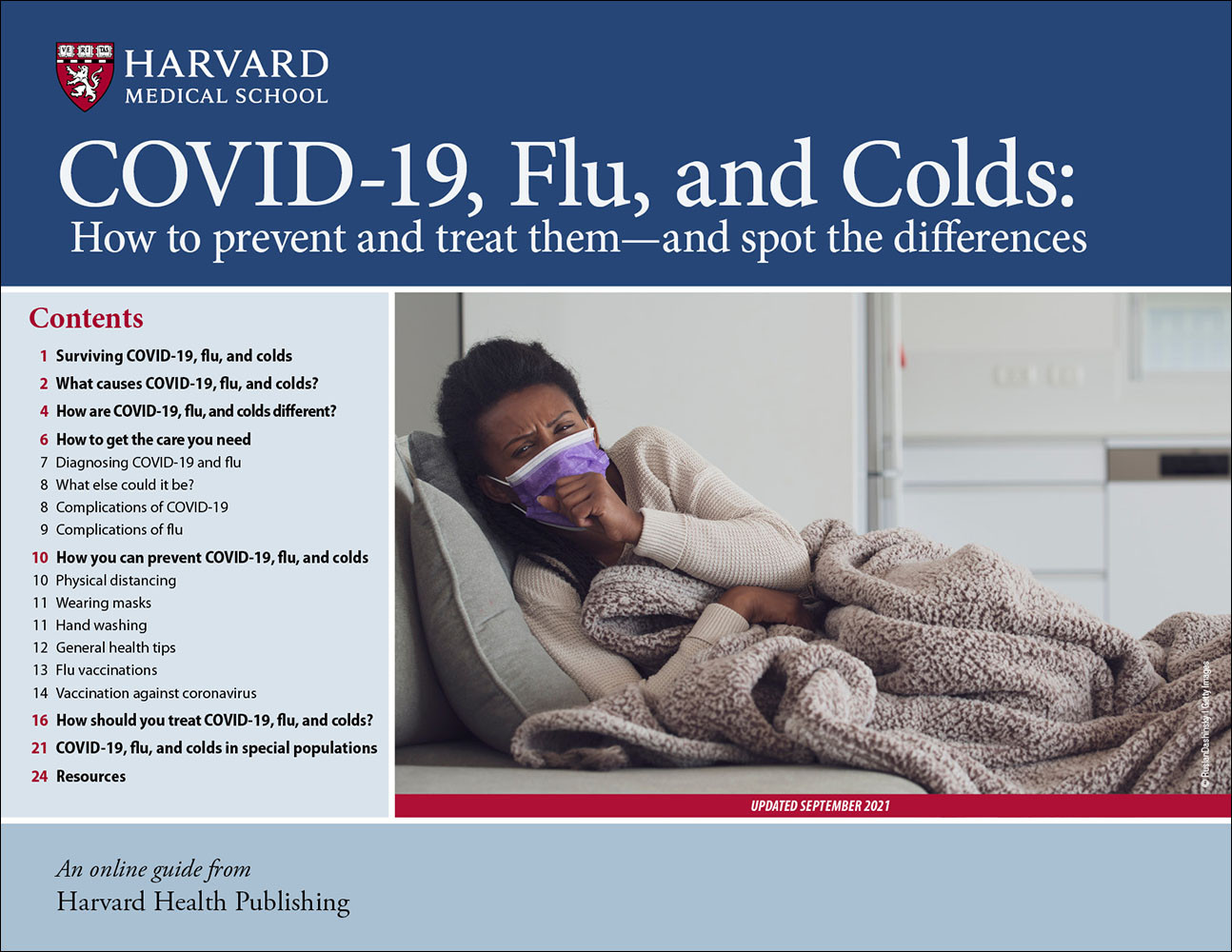COVID-19's cardiac legacy: An update
The virus may leave people more vulnerable to a host of heart-related issues. But vaccination can lower these risks.
- Reviewed by Christopher P. Cannon, MD, Editor in Chief, Harvard Heart Letter; Editorial Advisory Board Member, Harvard Health Publishing

More than three years into the COVD-19 pandemic, most Americans have been infected with the coronavirus at least once. It's now clear that these infections can have lingering effects on the cardiovascular system, including among people with no previous evidence of heart disease. Even a mild infection with SARS-CoV-2 (the virus that causes COVID-19) may increase your risk of a heart attack, stroke, or heart failure up to a year after you recover from the infection, as reported in the July 2022 Heart Letter.
Now, a new study reveals a higher risk of additional heart complications in people with post-COVID conditions (PCC), commonly known as long COVID (see "Long COVID: Lingering effects throughout the body"). Published March 3, 2023, in JAMA Health Forum, the study relied on health insurance claims data from more than 40,000 people throughout the United States during the first year of the pandemic.
Compared with people without a diagnosis of PCC, those with PCC were more than 3.5 times as likely to later have a pulmonary embolism (blood clot in the lung) and more than twice as likely to develop a heart rhythm problem such as atrial fibrillation. In addition, the risk of stroke, coronary artery disease, and heart failure were approximately twice as common in people with PCC.
Long COVID: Lingering effects throughout the bodyAn estimated 10% to 13% of people infected with COVID-19 have lingering, debilitating symptoms, known as post-COVID conditions (PCC). Also called long COVID, PCC is defined as new, returning, or ongoing health problems that occur or persist for four or more weeks after a COVID infection. Symptoms might include fatigue, cough, pain (joint, throat, chest), loss of taste or smell, shortness of breath, brain fog, and depression. The CDC has a more detailed list; see health.harvard.edu/loncov. The COVID Recovery Center at Harvard-affiliated Brigham and Women's Hospital treats people with long COVID, many of whom are young, previously healthy athletic women who now have many of the classic symptoms of postural orthostatic tachycardia syndrome, or POTS, which is described in detail in the October 2021 Heart Letter. |
Vaccine victory
However, this evidence was gleaned before COVID vaccines were widely available, starting in early 2021. "New research shows that being vaccinated against COVID can significantly lower the risk of serious heart problems, including heart attack, stroke, and death from heart disease, in people who get COVID," says cardiologist Dr. C. Michael Gibson, professor of medicine at Harvard Medical School. The benefits of vaccination are most pronounced in older people, who face the highest risk of heart problems, he adds.
The finding comes from more than 1.9 million people in the United States ages 18 to 90 who had a COVID-19 infection between March 2020 and February 2022. Even partial vaccination was linked to a lower risk of heart problems, note the authors, whose results appeared March 7, 2023, in the Journal of the American College of Cardiology.
What about myocarditis?
Myocarditis — inflammation of the heart muscle — is a rare condition that can arise after a viral infection, including stomach "flu," the common cold, or COVID-19. Although mild myocarditis may go unnoticed, more serious cases can cause severe heart failure and rhythm disturbances.
Starting in 2021, reports from around the world, including the CDC, noted a possible increased risk of myocarditis after receiving an mRNA COVID-19 vaccine (made by either Pfizer or Moderna). However, the risk of developing myocarditis is substantially higher immediately following a COVID infection than during the weeks after getting a COVID vaccine. That's according to an analysis of nearly 43 million people in England published Sept. 6, 2022, in Circulation.
"Getting just one dose of a COVID vaccine cut the risk of myocarditis in half," says Dr. Gibson. But it's worth noting that severe myocarditis is very rare. In this yearlong study, just one in 15,000 people was hospitalized for or died of myocarditis.
Because COVID vaccines also reduce the risk of other serious heart complications, the risk-benefit calculation is vastly in favor of getting vaccinated, says Dr. Gibson. Vaccines also appear to lower the risk of developing long COVID, so be sure to stay up to date with current CDC vaccination recommendations.
Image: © Luis Alvarez/Getty Images
About the Author

Julie Corliss, Executive Editor, Harvard Heart Letter
About the Reviewer

Christopher P. Cannon, MD, Editor in Chief, Harvard Heart Letter; Editorial Advisory Board Member, Harvard Health Publishing
Disclaimer:
As a service to our readers, Harvard Health Publishing provides access to our library of archived content. Please note the date of last review or update on all articles.
No content on this site, regardless of date, should ever be used as a substitute for direct medical advice from your doctor or other qualified clinician.
















